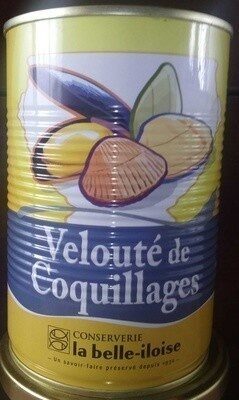
Barcode: 3660088101821
Velouté de coquillages
DOUBTFUL
📝 Reason: The product contains white wine, which is Haram due to its alcohol content as per Quran 5:90. Additionally, several seafood ingredients like mussels, mollusks, shrimp, conger eel, and clams are considered doubtful by some scholars due to the lack of a clear Islamic ruling on their permissibility. Therefore, the product is classified as Doubtful.
🏷️ Category: Seafood, Frozen Foods, Meals, Soups, Cream Soups, Reheatable Soups, Shellfish, Fish Soups
📄 Certificates: Without
Ingredients:
Details
Understanding the Halal Status of Velouté de coquillages
Velouté de coquillages, a delightful seafood soup, has become a favorite for many. However, for those who follow a Halal diet, it’s essential to know the Halal status of this product. The current classification for Velouté de coquillages is ‘Doubtful.’ But what does this mean, and how do the ingredients contribute to this classification?
Key Ingredients and Their Halal Status
Let’s delve into the primary ingredients of Velouté de coquillages and their respective Halal statuses:
- Water: Generally considered Halal.
- Mussel juice: Mussels are seen as Halal by some scholars but are considered doubtful due to a lack of clear Islamic rulings.
- White wine (sulfites): This ingredient is a concern, as alcohol is deemed Haram in Islam, as outlined in Quran 5:90.
- Coconut milk: A plant-based ingredient that is also Halal.
- Carrots: Another plant-based ingredient, considered Halal.
- Mollusks: Similar to mussels, mollusks are classified as Halal by some but viewed as doubtful by others.
- Shrimp: Considered Halal by some Islamic scholars but is a topic of debate among scholars.
- Conger eel: Also considered Halal by some but is classified as doubtful.
- Sunflower oil: A plant-based oil generally regarded as Halal.
- Clams: Clams fall under the same category as mollusks and mussels, being considered Halal by some and doubtful by others.
- Onions: A universally recognizable ingredient that is Halal.
- Cassava starch: A plant derivative and thus Halal.
- Yeast extract: Typically considered Halal unless derived from Haram sources.
- Salt: Minerals are inherently Halal.
- Aromatic herbs: Plant-based and considered Halal.
- Guar gum (E412): Plant-based and Halal.
- Celery: Similarly Halal as it is plant-based.
- Spices: Generally regarded as Halal unless mixed with Haram ingredients.
- Saffron: A plant-based spice recognized as Halal.
The Importance of Certification
Unfortunately, Velouté de coquillages does not have a Halal certification. The absence of certification can be significant for consumers seeking certainty in their food choices. The presence of ingredients such as white wine raises concerns for those adhering strictly to Halal guidelines.
Conclusion
In conclusion, while Velouté de coquillages contains several Halal ingredients, the inclusion of white wine and the classification of seafood ingredients result in the product being categorized as Doubtful. Therefore, if you maintain a Halal diet, it might be prudent to approach this product with caution. Always check for Halal certifications and consult with knowledgeable sources where necessary to ensure that your choices align with your dietary restrictions.
